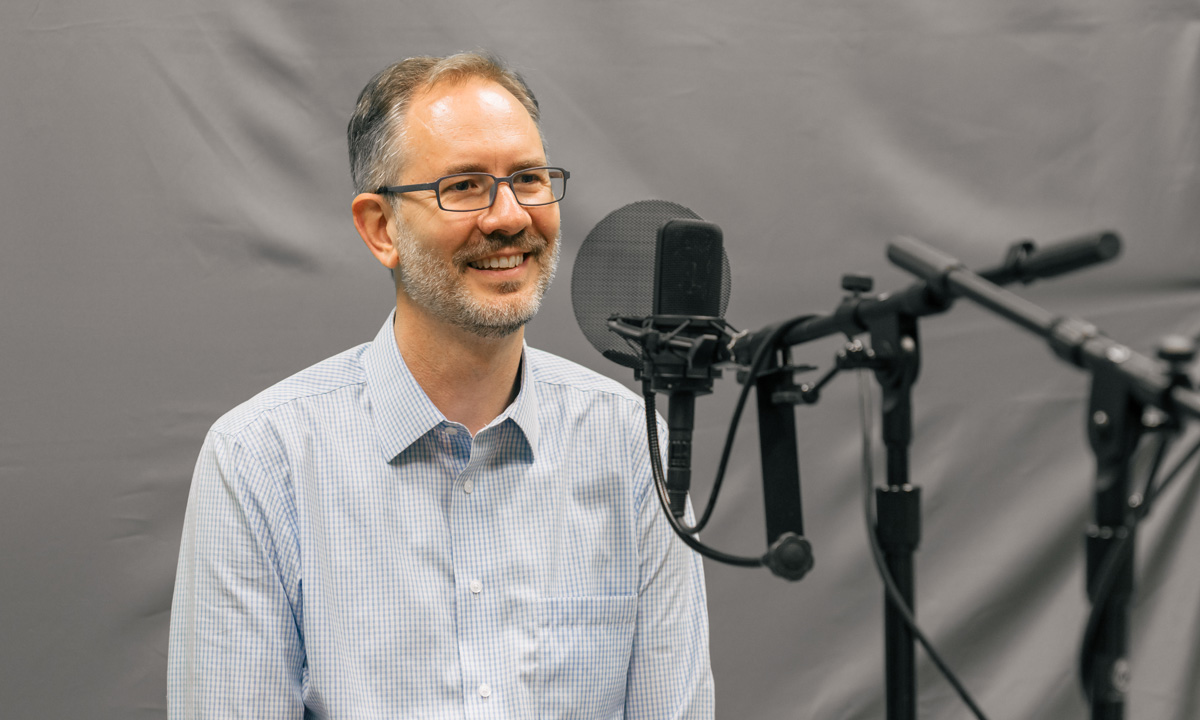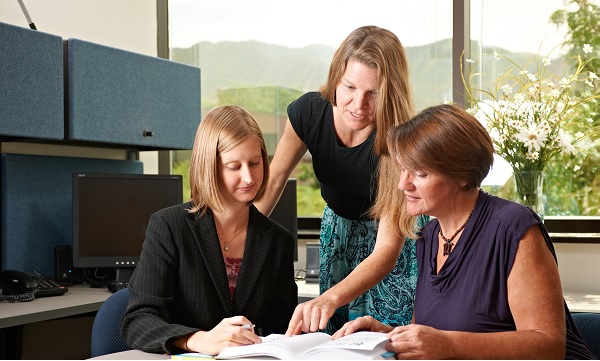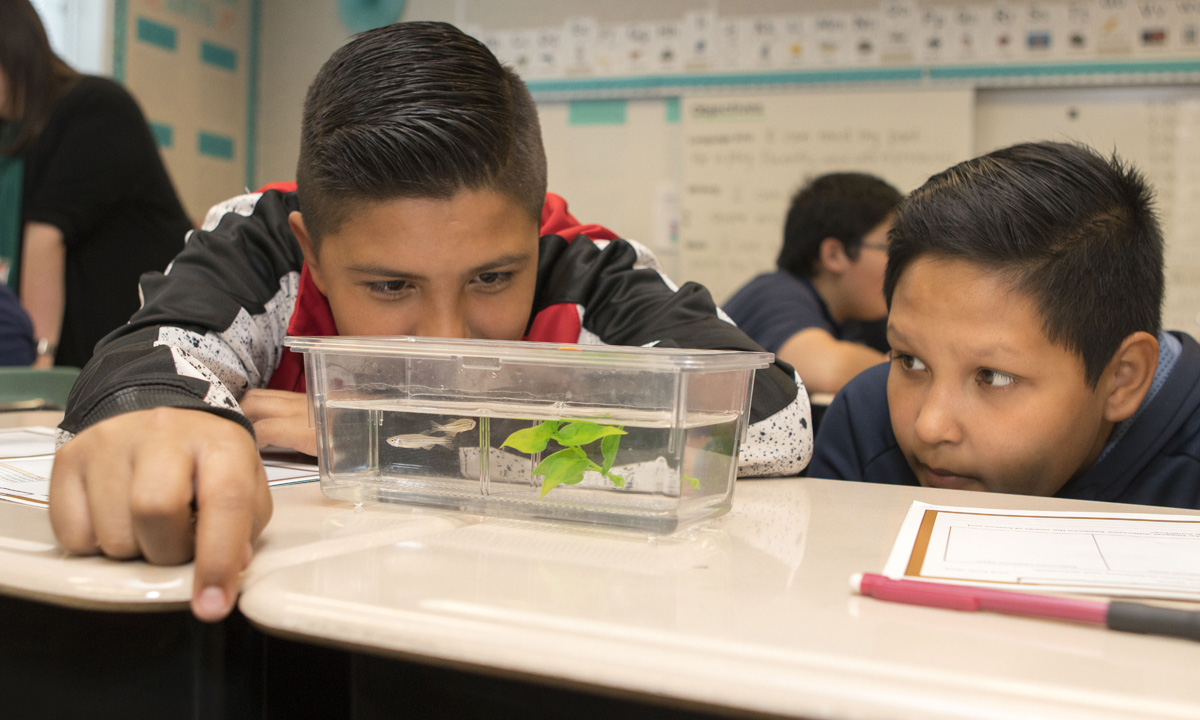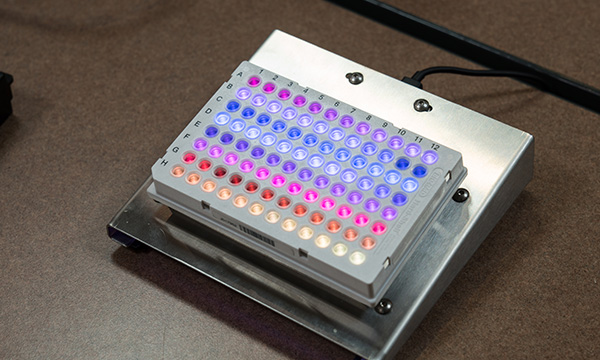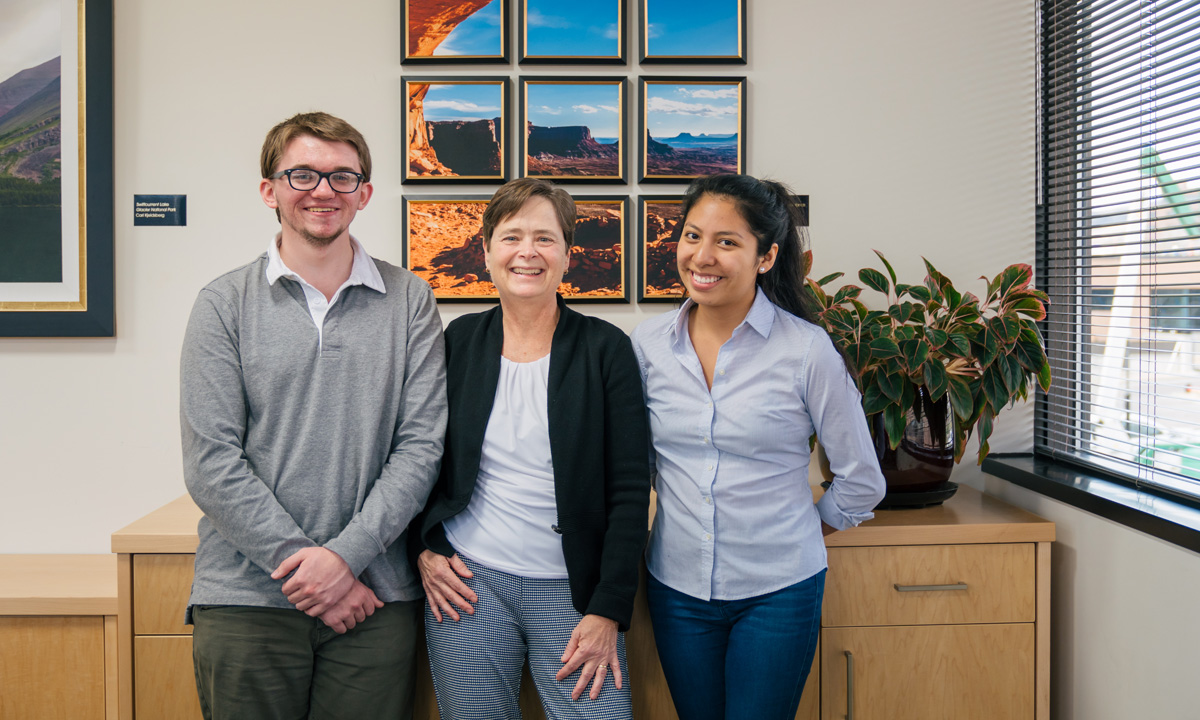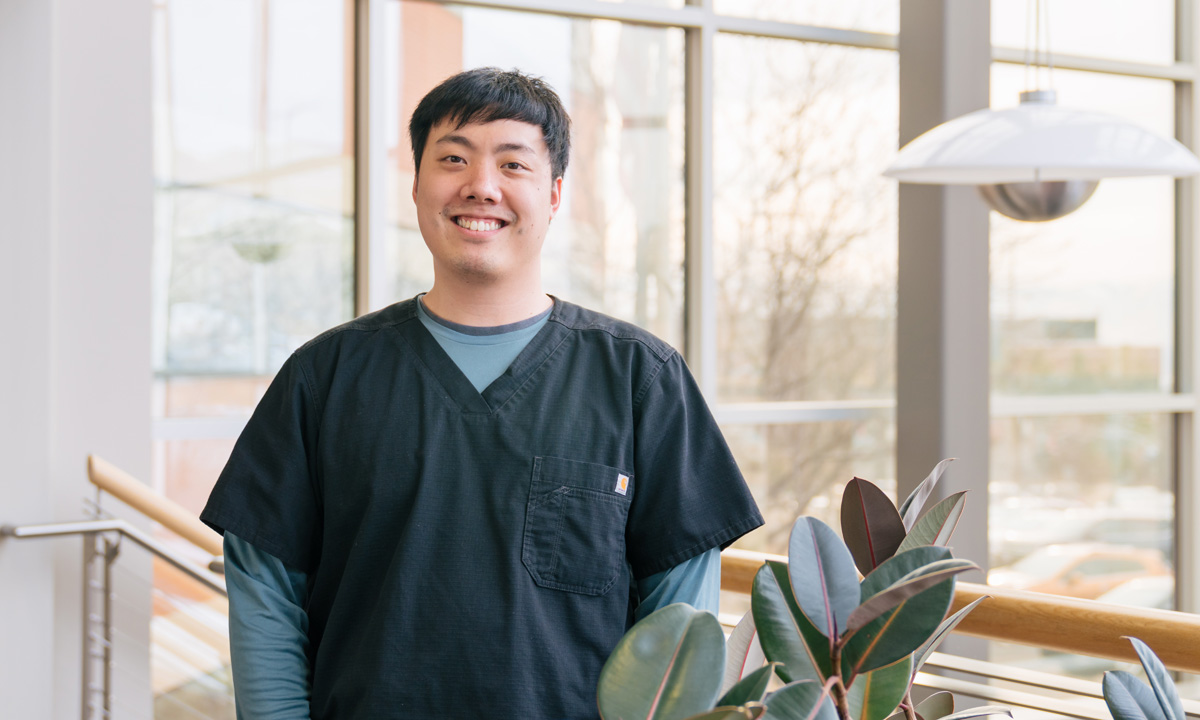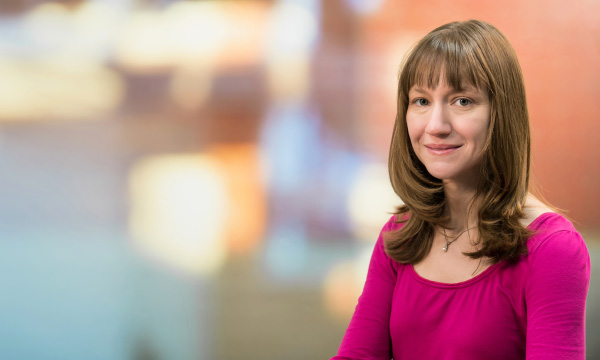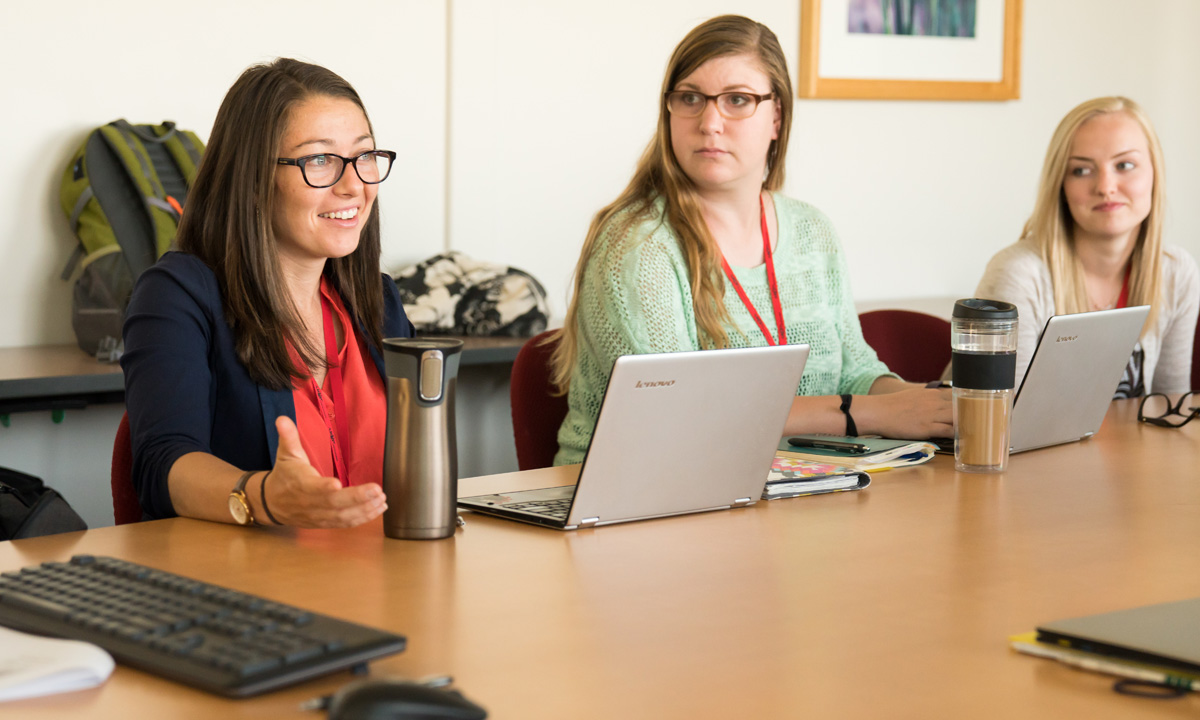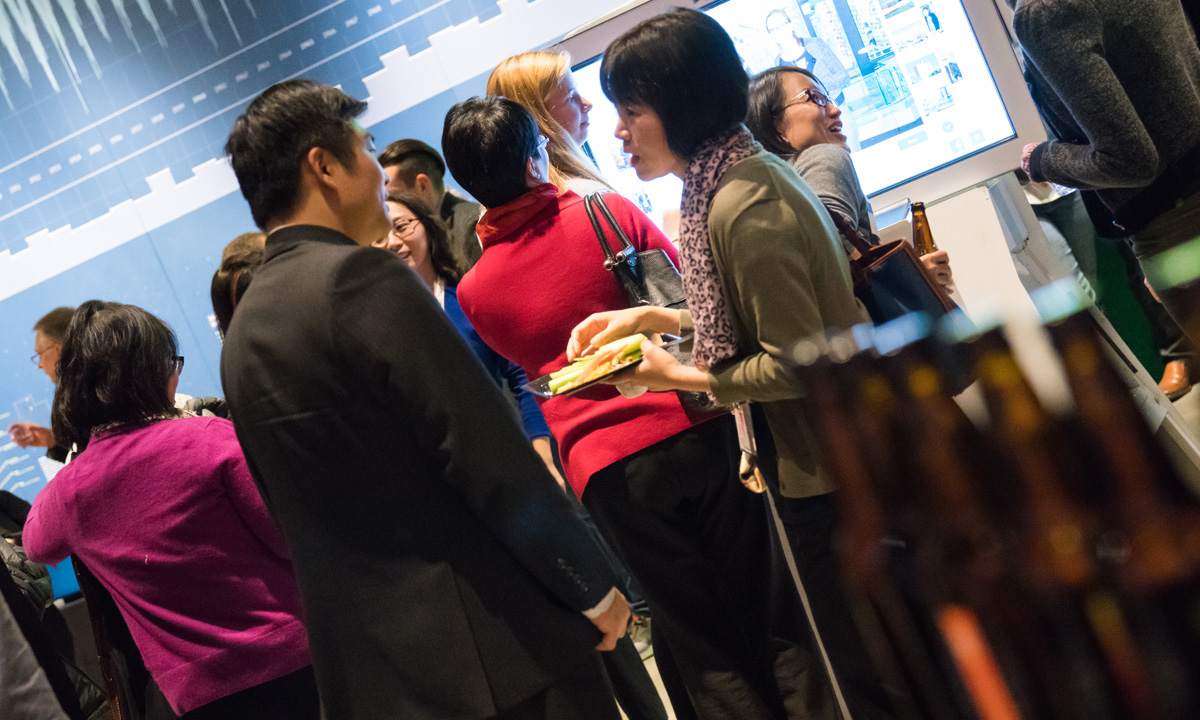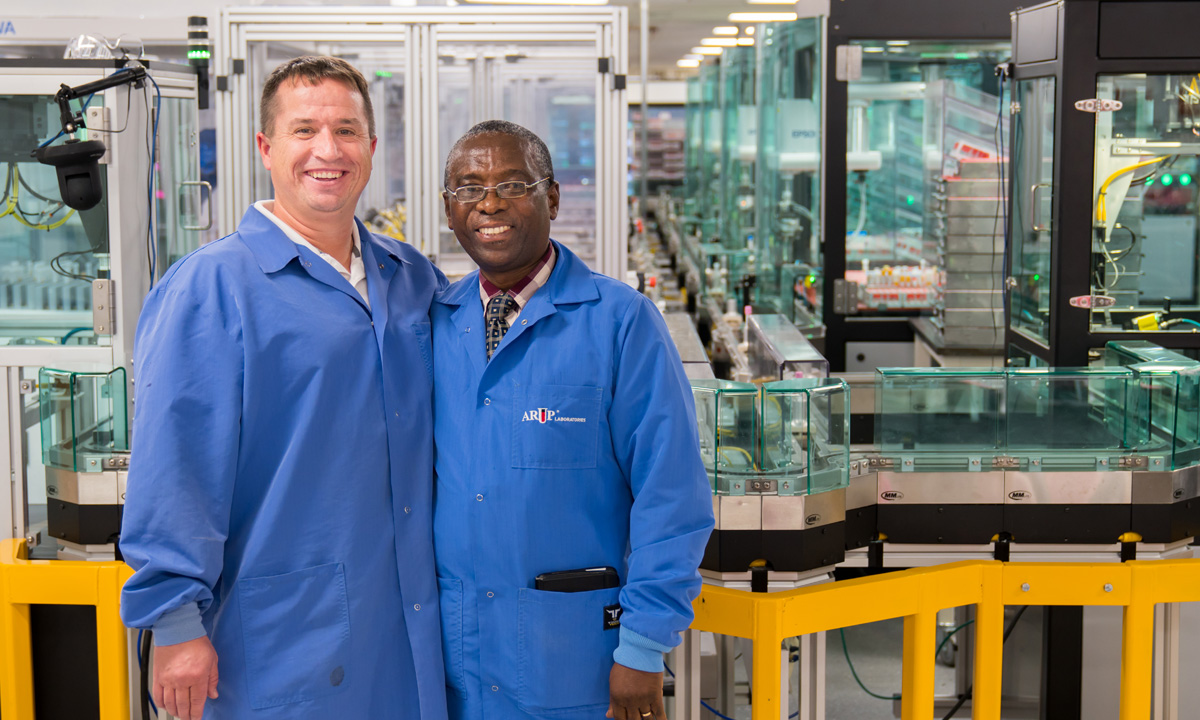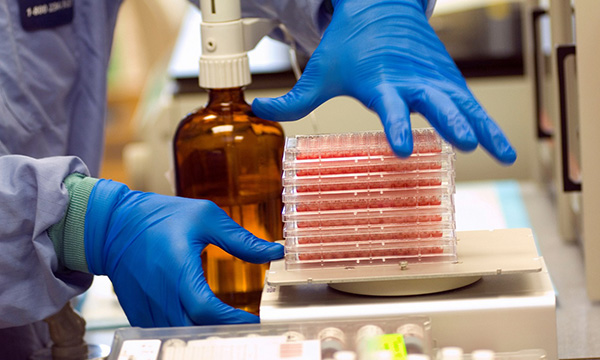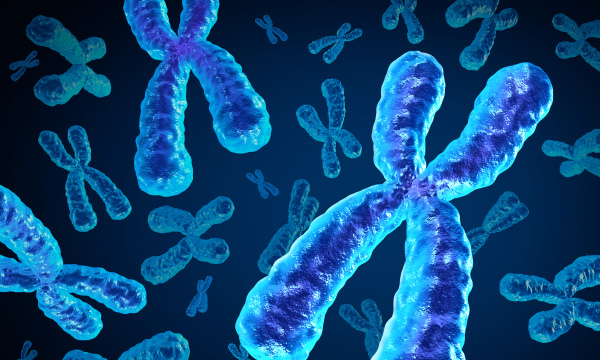The culture of doctoring. Myths of the invention process. Entrepreneurship. Brian Jackson, MD, MS, explores these topics and more in the context of laboratory medicine with ARUP’s new podcast LabMind.
Currently a team of 16 genetic counselors collaborate with each other and experts throughout ARUP to provide answers to patients.
Some Utah schoolchildren can watch zebrafish develop with the help of volunteers from ARUP Laboratories through BioEYES, a national science education program offered through U of U Health.
ARUP’s Tech Fair showcases the inventions and innovations of individuals in Automation Engineering, Clinical Systems, Information Technology, and other in-house “builders.”
ARUP’s CEO Sherrie Perkins meets with John Eggleston and Diana Martinez, who both received the Utah Promise Scholarship to help them pursue a college education.
ARUP's Institute for Learning (IFL) works with employees to provide support to receive training in the medical laboratory science field.
She didn’t feel math-y to start.
ARUP has been recognizing the need for well-qualified genetic counselors by hosting a three-week course for students in UUGPGC, where some of ARUP’s genetic counselors are faculty members.
Attendees of the Association for Molecular Pathology (AMP) Conference toured ARUP’s main building in Research Park that houses most of its 65 laboratories, many of which operate 24/7.
Two visiting scholars from Ghana rotated through ARUP’s laboratories to gain knowledge to improve laboratory testing in Ghana, specifically at Komfo Anokye Teaching Hospital where they work.
Interview with Torrance (Tory) Meyer, a training specialist and technologist II in the Molecular and Infectious Disease (MID) Laboratory.
Cytogeneticists arrange and examine the 23 pairs of chromosomes to zero in on genetic variations. This work can aid in diagnosing cancer, autism, recurrent fetal loss, and other congenital anomalies.

















